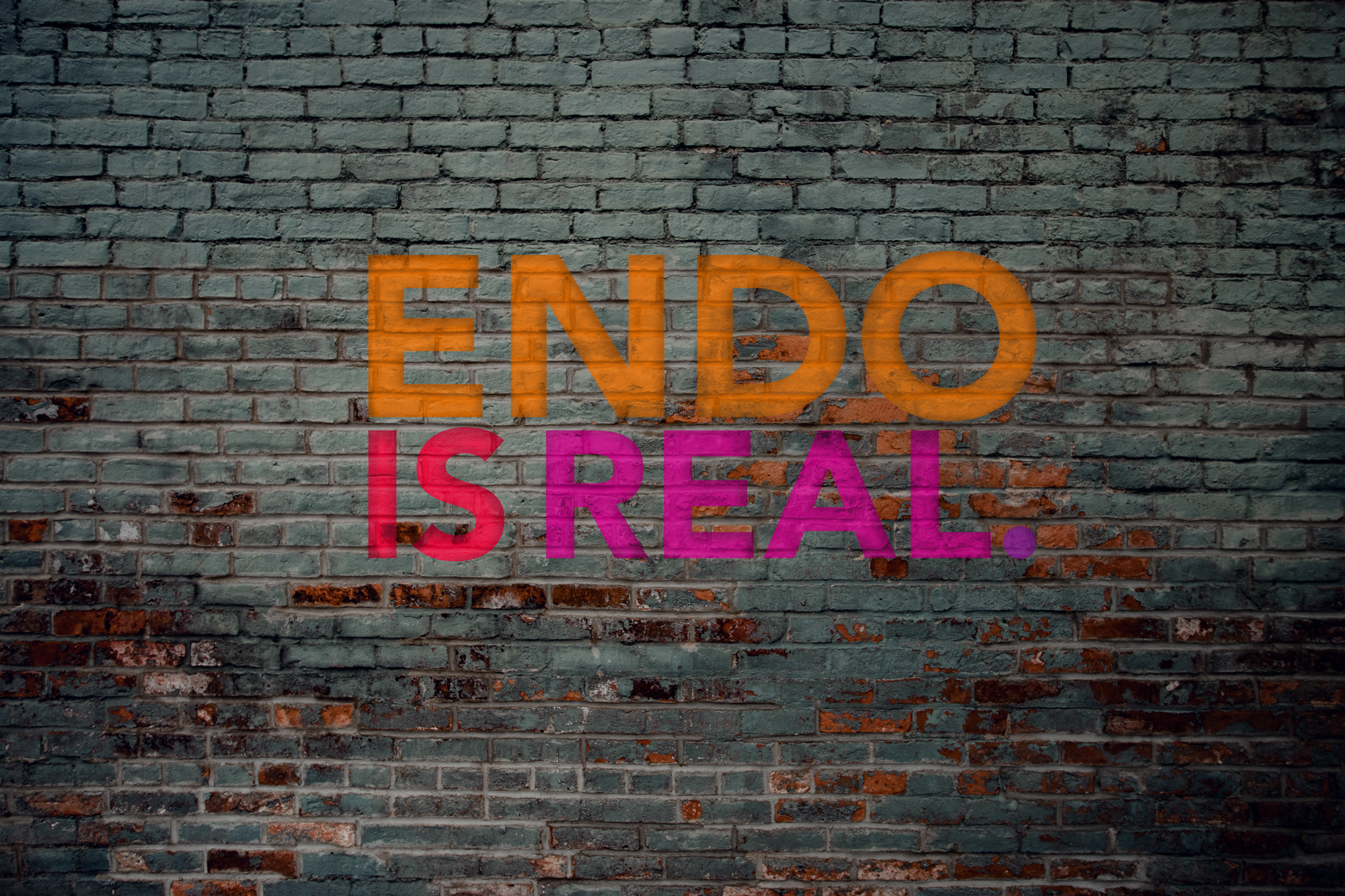
3 ways to navigate life with endometriosis
Chances are you know someone with endometriosis — or “endo” for short. The pernicious disease, in which tissue similar to the endometrial lining is found outside the uterus, affects nearly 200 million people worldwide, including more than 6.5 million in the United States. On average it can take about seven to 10 years to get diagnosed — and, without a diagnosis, it’s nearly impossible to get treatment. Delayed diagnosis can lead to protracted pain and suffering, infertility, job loss, social and psychological impacts, and decreased quality of life. Despite the prevalence and profound effects, people with endometriosis are commonly not believed when sharing their experiences and seeking medical help. And research to develop better options for getting a diagnosis and treatment remains woefully underfunded.
A new, hour-long documentary from director Shannon Cohn, called Below the Belt seeks to catalyze change by bringing endometriosis into mainstream conversation. Premiering on PBS on June 21 (and in talks for wider distribution), the film follows four women in the US navigating endometriosis symptoms and treatment, while weaving in jaw-dropping stats and the voices and experiences of a chorus of others. The result is a powerful illustration of the disease’s impact and debilitating effects, all-too-common barriers to care, and the pains of navigating a fractured healthcare system. Similar to Endo What? — Cohn’s 2016 documentary on the subject — Below the Belt cuts through myths with a clear-eyed look at the condition and the systems that make access to quality care so challenging and expensive. And, if you have endometriosis, it’s an informative and accessible film that you can share with friends and family to help explain what it’s like to live with the disease and help get them up to speed.

Actress Rosario Dawson, who served as one of the film’s executive producers alongside Hillary Rodham Clinton, says, “Below the Belt aims to revolutionize the status quo so that people with endometriosis get what we deserve: the right to live healthy, informed, fulfilling lives.”
If you’re living with endometriosis (or suspect you are), here are three ways you can advocate for better care and navigate life with the condition.
Seek an endometriosis specialist
Endometriosis is a complex disease, so working with a doctor with specialized training at an endometriosis center can help you build a treatment plan tailored to your particular situation. As highlighted in Below the Belt, 63% of general practitioners feel uncomfortable diagnosing and treating endometriosis, according to a study from Gynécologie Obstétrique & Fertilité, and half couldn’t name the three main symptoms of the disease. And, 82% of gynecologists admit to not being able to perform advanced laparoscopic surgery, according to research in the journal Ultrasound in Obstetrics & Gynecology. Finding specialists trained to identify and treat endometriosis can help you get quality care with the most up-to-date techniques that suit your needs.
Untangle common endometriosis myths
When it comes to endometriosis, myths and confusion abound. Here’s a quick primer to help you as you navigate what course of treatment is best for you:
- Endometriosis affects everyone: The oft-cited stat that endometriosis affects “1 in 10 women” leaves out the full spectrum of people who can have the condition. Cisgendered women and girls, nonbinary folks, trans men, anyone with a uterus, anyone who once had a uterus, and anyone of any age can have endo. There have also been a small number of reports of cisgendered men with the disease.
- Getting an official diagnosis: Scans like an ultrasound or MRI may help detect endometriosis, but laparoscopic surgery has long been the standard for officially confirming the diagnosis. In this operation, a surgeon makes small incisions in the abdomen, inserts a device with a light and a tiny video camera, and looks for endometriosis lesions. Tissue samples then go to a pathologist to examine under a microscope to verify whether endometriosis is present or not.
- Managing symptoms: Symptoms can include heavy and painful periods, pain during ovulation, painful intercourse, stomach issues, pain with bowel movements, infertility, stomach problems, lower back pain, leg pain, and fatigue. Taking non-steroidal anti-inflammatory drugs (like ibuprofen or naproxen) or hormonal birth control pills can lessen pain symptoms. Keep in mind that treating symptoms is not the same thing as treating the root cause of a disease. Since endometriosis is a chronic condition and known to be a progressive disease, symptoms may change or increase over time.
- Treatment to remove the disease: An expertly performed excision surgery, ideally done by a high-volume surgeon specializing in endometriosis, removes endometriosis from the body in a precise way, without leaving disease behind.
- Ablation versus excision: Unlike excision, ablation is a surgery that burns away the disease. If you think of an endometriosis lesion as an iceberg, excision cuts away the whole formation, whereas ablation lasers off just the tip. This can leave disease behind.
- A holistic approach: Given the far-reaching effects of endometriosis, patients may benefit from multidisciplinary methods. This could include a blend of things like pelvic floor physical therapy, acupuncture, massage, nutrition, seeing pain specialists, mental health support, exercise, stress management, and peer support.
Find your endometriosis community
Connecting with folks who get it can make all the difference when navigating endometriosis. To find a “friendo,” seek out support groups and endometriosis events online or in your region. Since March is Endometriosis Awareness Month, it’s a hot time for endometriosis-centered conferences and gatherings. Here’s a sampling of organizations and events:
Endometriosis Foundation of America
This nonprofit organization, founded by Tamer Seckin, MD and actress Padma Laksmi, hosts an annual Patient Day with a full slate of speakers live streamed from New York City. This year’s weekend-long gathering has passed, but you can view recordings of past events on their website. They also organize teams to run 5Ks and marathons to raise money for endometriosis advocacy and research.
The Endometriosis Coalition
Jenneh Rishe, a registered nurse and one of the patients featured in Below the Belt, started this nonprofit dedicated to raising awareness, promoting reliable education, and increasing research funding. Beginning in summer 2023, the coalition will also be hosting virtual support groups via Zoom, which will “provide an opportunity for endometriosis patients to share personal experiences and learn coping strategies,” according to the website.
Below the Belt screenings and panel discussions
In addition to airing on PBS at the end of the month, you can catch live film screenings, both online and in-person, each paired with a panel discussion with endometriosis experts — and audiences filled with fellow endometriosis patients and allies.
endoQueer
Founded by Les Henderson, endoQueer offers LGBTQIA+ led support and resources for endometriosis (and similar illnesses) through events, a private Facebook group, a public Instagram account, a newsletter, and a resource list on their website. Henderson and a team of volunteers also advocate for increased research funding and raise awareness of the disease’s effects on all people, not only cis-women.
Endo Black
Lauren Kornegay founded Endo Black, an organization that supports African American women and women of color with the life-altering chronic illness, because she knows on a personal level the importance of connecting with people who share similar experiences. With a mission to “educate, engage, and encourage endo sisters,” the organization provides resources and organizes an ambassadors program, as well as social and educational events. On March 25, the team will host their third Endo Black Advocates and Allies Conference in Maryland.
“I just want to encourage people,” Kornegay told me in a phone call. “I think it’s important for people to recognize that this is a life-altering disorder and this is a full-body disorder, but this is not the end of the world. There is a way to manage. You have to figure out what way works for you. And it will take time.”
Photos courtesy of Below the Belt film.




